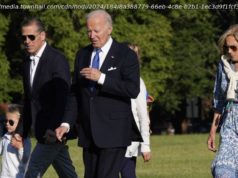ISLAMABAD – Pakistani authorities Saturday arrested Shah Mahmood Qureshi a twice-former foreign minister and current opposition leader on charges that
Pakistani authorities Saturday arrested Shah Mahmood Qureshi, a twice-former foreign minister and current opposition leader, on charges that he played a role in misusing official secret information for political gains.
Qureshi, the acting head of the Pakistan Tehreek-e-Insaf, or PTI, the party of jailed former Prime Minister Imran Khan, was taken into custody from his residence in Islamabad just hours after he addressed a news conference, condemning a police crackdown on his party workers.
Officials said Qureshi was detained in connection with an ongoing investigation into a March 7, 2022, Pakistani secret diplomatic cable, known internally as a cipher, which allegedly contained a threat from the United States to remove then-Prime Minister Khan from power.
The cipher allegedly documented a meeting between U.S. State Department officials and Islamabad’s then-ambassador to the U.S., Asad Majeed Khan.
Last week, an American news outlet, The Intercept, published what it said was the cipher text for the first time, which Imran Khan has long held up as evidence of his claim that Washington engineered his defeat in a parliamentary no-confidence motion in April last year.
According to the Pakistani ambassador’s purported cable, the State Department officials at the meeting encouraged him to tell Pakistan’s powerful military that if Imran Khan were removed from office over his neutrality on the Russian invasion of Ukraine, Islamabad could expect warmer relations with Washington.
Pakistan’s Federal Investigation Agency reported in its initial findings that Imran Khan, Qureshi, and their associates ‘are involved in (the) communication of information contained in (the) secret classified document’ to the public at large and ‘in a manner prejudicial to the interests of state security.’
No legal expert has questioned the legality of sharing the information.
Home
United States
USA — Criminal Pakistan Arrests Ex-Foreign Minister Qureshi Under Anti-Espionage Law






